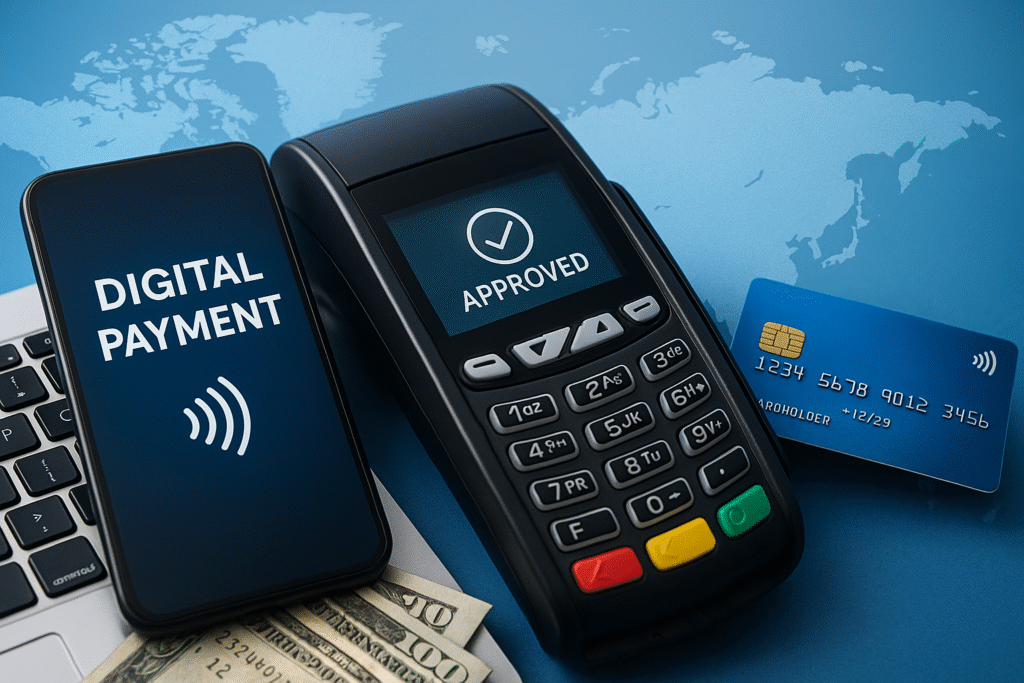Digital trade payments transforming international imports
In 2025, the shift toward digital trade payments is one of the most important changes affecting global commerce. Importers who once depended on wire transfers, checks, or letters of credit now have access to faster and more reliable methods. These modern platforms reduce settlement times from days to minutes, lowering transaction costs and increasing trust among trading partners. By minimizing delays, companies can keep goods moving and avoid costly disruptions in their supply chains.
Secure digital solutions for global transactions
The growing use of digital systems is closely tied to security improvements. Platforms now include encryption, multi-factor authentication, and blockchain verification. This combination not only protects sensitive data but also ensures compliance with anti-money-laundering and know-your-customer regulations. Instead of facing time-consuming manual checks, importers benefit from automated compliance integrated into every payment. Consequently, fraud risk decreases while operational speed increases, creating a more stable financial environment.
Transparency and efficiency in trade payments
Beyond security, efficiency plays a decisive role. By removing intermediaries, digital platforms reduce bank fees and eliminate paperwork. Real-time dashboards allow importers to monitor cash flows with greater accuracy, making planning far more effective. In addition, instant confirmations strengthen supplier relationships, as businesses no longer face uncertainty about payment arrival. This transparency improves communication between partners and reduces disputes, leading to smoother logistics operations and faster delivery.
Fintech innovation driving digital trade payments
Fintech companies are central to this transformation. They provide tools for currency conversion, automated reconciliation, and integration with enterprise systems. Smaller importers, who previously lacked access to sophisticated banking infrastructure, now gain equal footing with larger competitors. Moreover, interoperability projects make it possible for payments to move seamlessly across jurisdictions, reducing barriers to international expansion. These innovations highlight how fintech is democratizing access to global commerce.
Strategic outlook for importers in 2025
Looking ahead, digital trade payments will become a standard feature of resilient supply chains. Companies adopting these solutions early are not simply saving money; they are also preparing for long-term competitiveness. The combination of speed, transparency, and built-in compliance offers advantages that traditional systems cannot match. Importers that embrace digital transformation in finance will secure stronger partnerships, reduce risks, and maintain agility in an unpredictable global market.
Source: World Trade Organization

